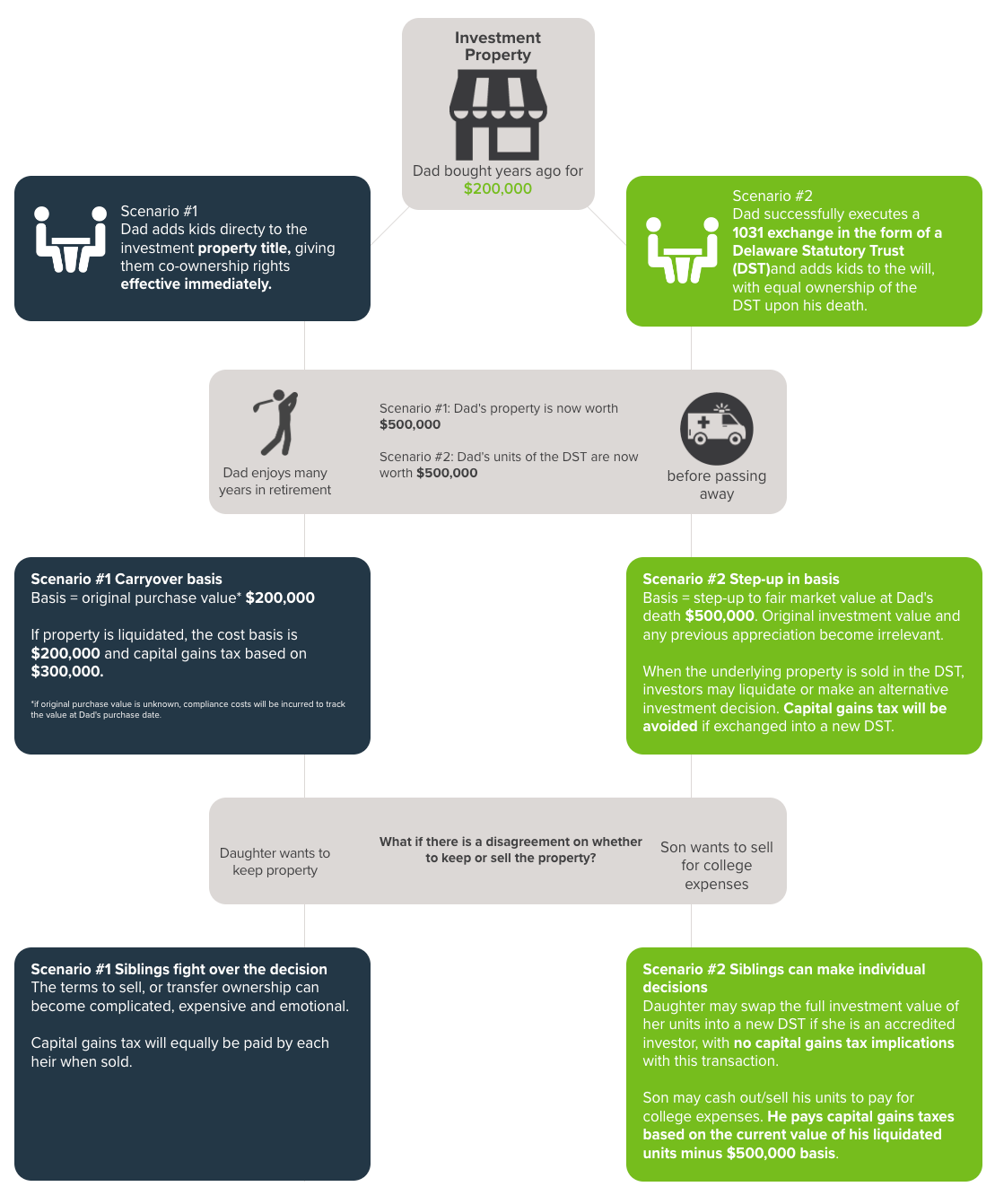There are few financial tasks more important than estate planning for those with significant assets. It is sensible to not only identify the heirs of each asset, but also to ease future tax or administrative burdens whenever possible. With a proper estate plan, heirs may continue to benefit from an investment. It is important to engage tax and legal professionals to obtain estate planning advice.
By investing in a Delaware statutory trust, or DST, heirs may receive any distributions paid from the investments. Upon the sale of the property owned by the DST, each heir can choose what to do with their inherited portion. It is possible that one heir continues to exchange the investment, while another can sell and receive cash proceeds.
Lastly, should a DST investor pass away, under the current tax laws the heirs would get a “step-up” in tax basis bringing the investment up to fair market value, thereby potentially deferring capital gains taxes on the original and subsequent properties.
The value of a step-up in basis option as compared to carryover basis, is capital gains tax savings!
Timing of when a beneficiary inherits property is critical. Property transferred before death receives a “carryover basis” which means the original cost basis is carried over to the heir(s). This requires the heir(s) to pay capital gains taxes on appreciation in the property’s value that occurred during the donor’s lifetime if they sell the property.
The cost basis of property transferred at death receives a “step-up” in basis to its fair market value. The asset receives a step-up in basis so that the beneficiary's capital gains tax excludes the appreciation on the property’s value. For the heir receiving the asset, this can be a substantial tax perk and a form of tax simplification because tracking cost basis of long-term assets can be difficult and expensive.
Illustrative Estate Planning Example*
Dad has saved well and does not need to liquidate any real estate assets for his retirement plans. He plans to pass a property to his two children equally. The graphic below provides an illustrative example of two potential scenarios. Note this is a simplified example intended to solely illustrate impact to basis and capital gains taxes.

*The illustration above does not constitute tax or legal advice for any investor. Investors should consult competent tax and/or legal counsel with respect to their specific situation. Nothing herein may be construed as a method or means to avoid estate or property taxes. Please see SEC.gov, Rule 501 of Regulation D for a full definition of an accredited investor.

